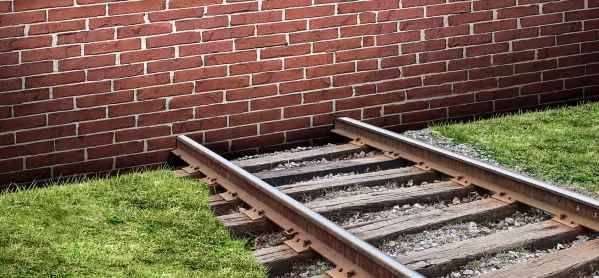Rail strikes and exams: what you need to know

National rail strikes are due to take place on 21, 23 and 25 June 2022, and a London Underground strike is set for 21 June 2022.
For secondary schools and colleges, this will be causing concern because these dates fall within the examination period.
Information regarding the impact of the strikes has been scattered across the Department for Education and Joint Council for Qualifications websites, so we‘ve been through the guidance to provide a snapshot of what you need to know ahead of next week:
GCSEs and A levels 2022: contingency plans for rail strikes affecting exams
What happens if a single candidate is late because of the strikes?
If a student is late for an exam because of a strike, the DfE’s guidance (Information: advice for schools in preparation for planned RMT industrial strike action), issued on 15 June, advises schools and colleges to “allow students to take the paper, and exam boards will determine whether that paper can be accepted”.
What happens if a large number of students are late for their exams?
If there are many students late for an exam then schools can find guidance on how to proceed on page two of the JCQ document (Guidance for centres managing exams):
“For the June 2022 series only, if centres are not able to start an examination within 30 minutes of the published start time, the examination may start later provided that it is held on the timetabled date and candidates are supervised by a member of centre staff from no later than 30 minutes after the published start time until the examination starts.”
What happens if invigilators are late due to the strikes?
In the event that staff invigilating the exam are late to arrive, then page four of the JCQ document (Guidance for centres managing exams) states that it is at the discretion of the head of centre or deputy as to how to proceed.
“If the head of centre or designated deputy is not confident that the examination can be conducted with integrity with the invigilators that are available, they may wish to consider delaying the exam until later in the day or splitting the cohort into different groups of candidates.
“Where an exam is delayed, candidates must always be supervised in accordance with paragraph 7.5 of Instructions for Conducting Examinations.”
If an exam starts late because of the strikes, will students have less time to complete the paper?
No, the full time for an exam should always be given.
In a bulletin released by JCQ on 15 June, schools were advised that “candidates must always be allowed the full amount of time as specified for the examination in the awarding body’s published timetable”.
If a student arrives late to the exam because of the strikes, then the JCQ advises that schools still allow them the full time to sit the exam.
“Candidates who arrive within one hour of the scheduled start of the examination are allowed (at the discretion of the centre) to enter and sit the exam. If a late arriving student is allowed to sit the exam, they must be allowed the full duration of the examination.”
If a candidate arrives later than one hour after the start of the exam, they are considered “very late”. They may still be allowed to sit the exam, and this needs to be administered correctly by the centre”.
What happens if a student misses the exam altogether because of the strikes?
If a student misses the exam altogether, there is still a chance they will be awarded a grade.
As part of the joint contingency plan, JCQ’s ‘Preparing for disruption to examinations’ document says: “Wherever possible, it is always in the best interest for candidates to sit the examination. However, if candidates who are unable to sit the examination meet the criteria, special consideration through absence for acceptable reasons is an option.”
What if a school cannot open because of the strikes?
The JCQ says in its guidance (Preparing for disruption) that “contingency plans must focus on enabling candidates to take their examinations if the centre is at risk of being unable to open as normal” and that the responsibility to decide if it is safe to open lies with the head of centre.
The DfE has updated its contingency planning document to include instructions for schools regarding what to do if the school cannot open due to staff shortages as a result of the strikes.
This guidance states that in the event that the school cannot open, it may mean “relocating to alternative premises” to allow students to take the exam. In this situation, schools should contact the relevant exam boards to ask for guidance.
Should schools and colleges expecting disruption do anything now?
In its guidance to schools (Information: advice for schools in preparation for planned RMT industrial strike action), the DfE say schools with specific concerns should contact the relevant exam boards at the earliest opportunity.
Where can I find more information?
You need a Tes subscription to read this article
Subscribe now to read this article and get other subscriber-only content:
- Unlimited access to all Tes magazine content
- Exclusive subscriber-only stories
- Award-winning email newsletters
Already a subscriber? Log in
You need a subscription to read this article
Subscribe now to read this article and get other subscriber-only content, including:
- Unlimited access to all Tes magazine content
- Exclusive subscriber-only stories
- Award-winning email newsletters
topics in this article



